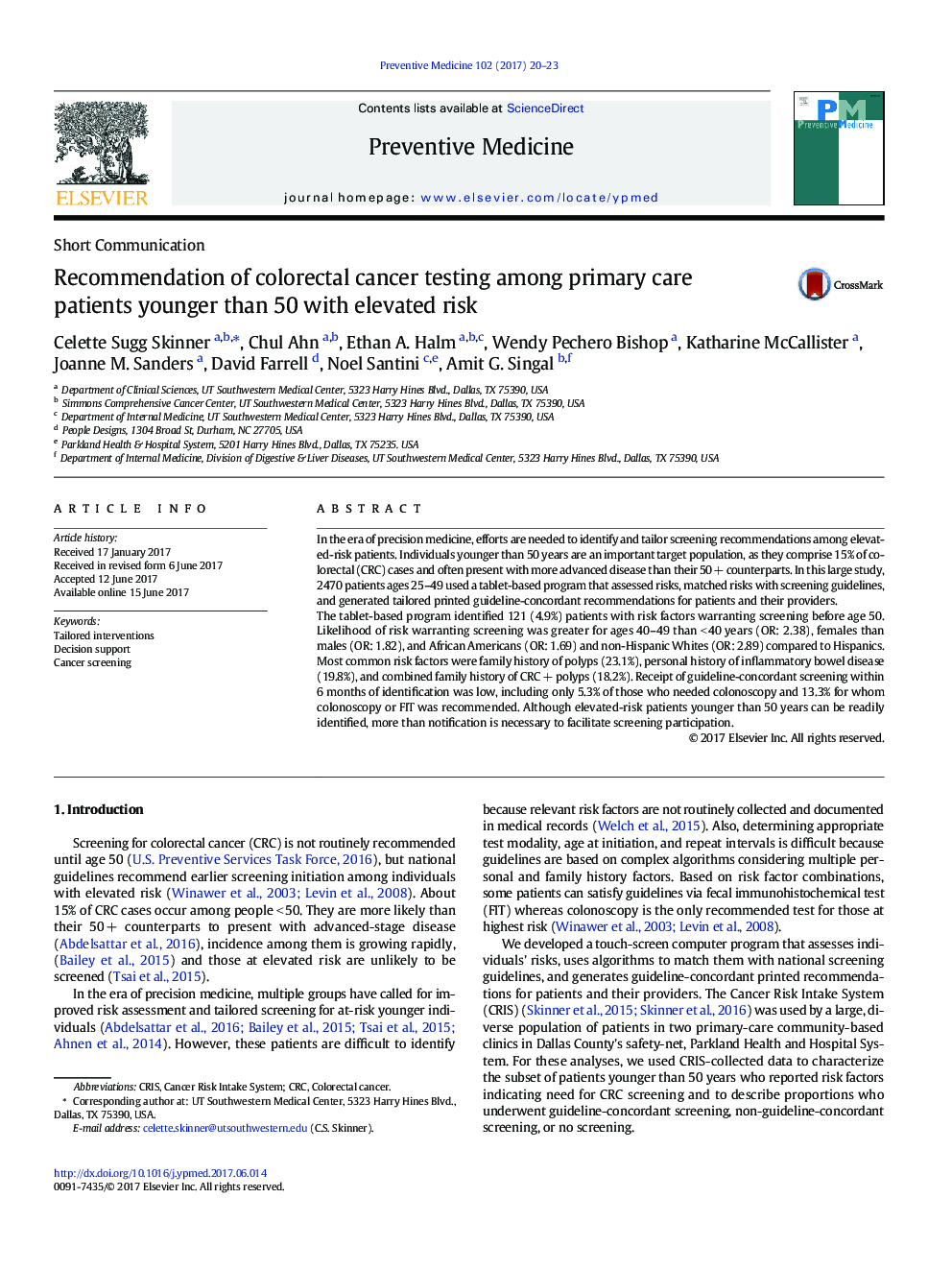| Article ID | Journal | Published Year | Pages | File Type |
|---|---|---|---|---|
| 5635578 | Preventive Medicine | 2017 | 4 Pages |
â¢Tablet-based program finds patients < 50 years with risks warranting CRC screening.â¢Likelihood of risk warranting screening was greater for ages 40-49 than < 40 years.â¢Receipt of guideline-concordant screening â¤Â 6 months of identification was low.â¢More than notification is necessary to facilitate screening participation.
In the era of precision medicine, efforts are needed to identify and tailor screening recommendations among elevated-risk patients. Individuals younger than 50Â years are an important target population, as they comprise 15% of colorectal (CRC) cases and often present with more advanced disease than their 50Â + counterparts. In this large study, 2470 patients ages 25-49 used a tablet-based program that assessed risks, matched risks with screening guidelines, and generated tailored printed guideline-concordant recommendations for patients and their providers.The tablet-based program identified 121 (4.9%) patients with risk factors warranting screening before age 50. Likelihood of risk warranting screening was greater for ages 40-49 than <Â 40Â years (OR: 2.38), females than males (OR: 1.82), and African Americans (OR: 1.69) and non-Hispanic Whites (OR: 2.89) compared to Hispanics. Most common risk factors were family history of polyps (23.1%), personal history of inflammatory bowel disease (19.8%), and combined family history of CRCÂ +Â polyps (18.2%). Receipt of guideline-concordant screening within 6Â months of identification was low, including only 5.3% of those who needed colonoscopy and 13.3% for whom colonoscopy or FIT was recommended. Although elevated-risk patients younger than 50Â years can be readily identified, more than notification is necessary to facilitate screening participation.
